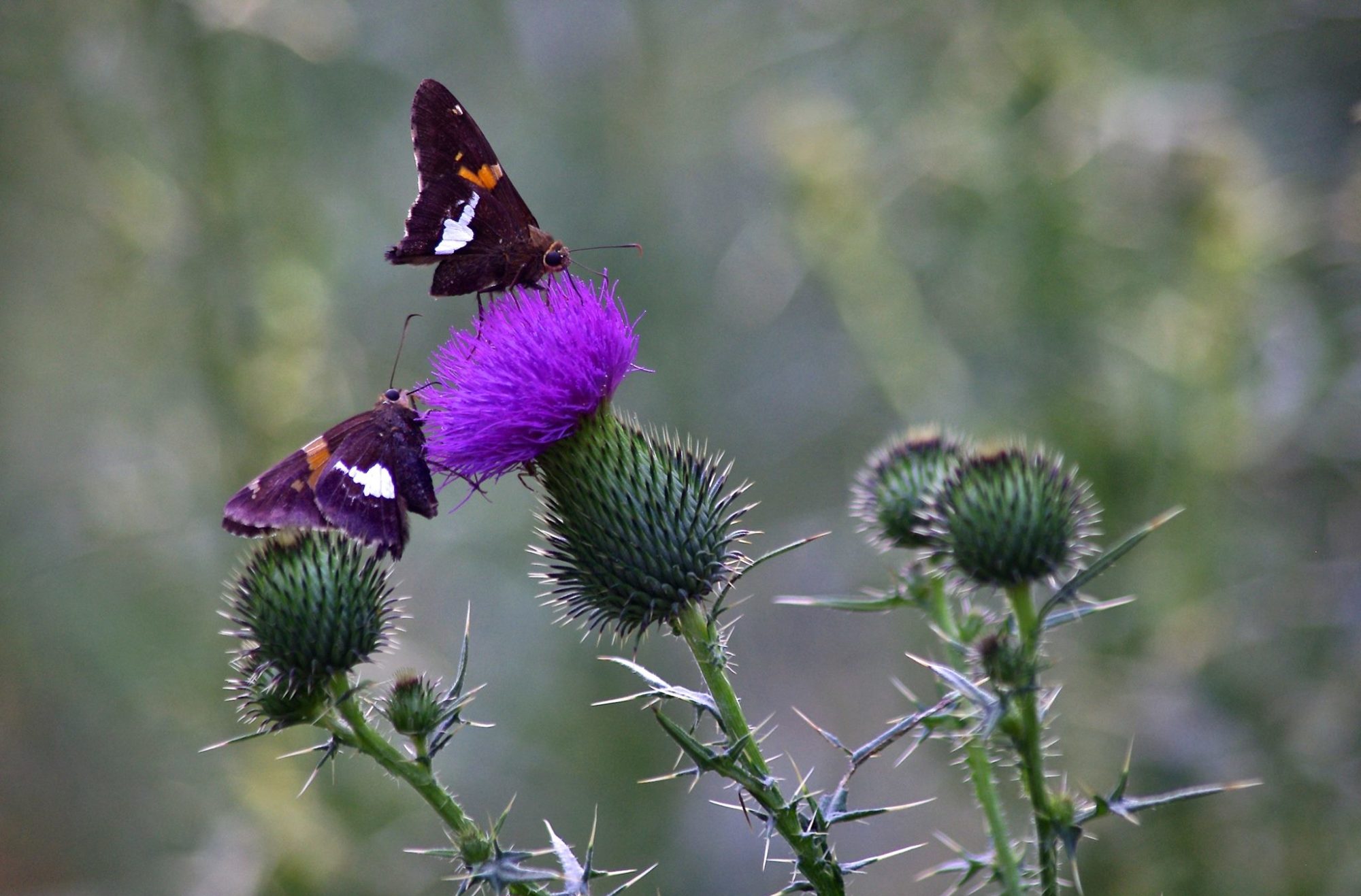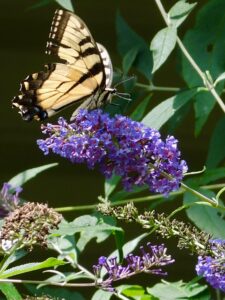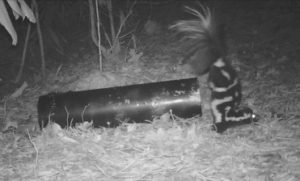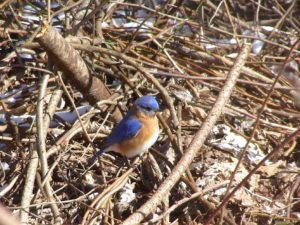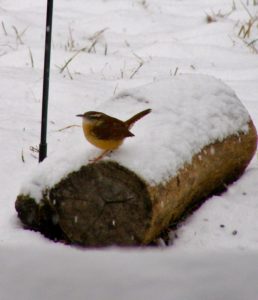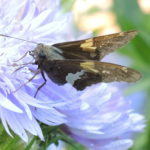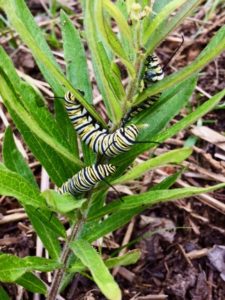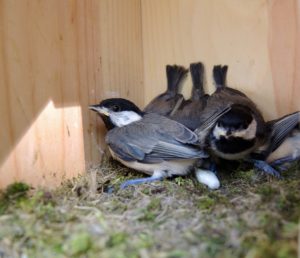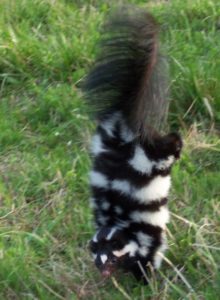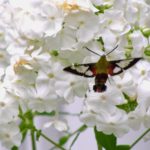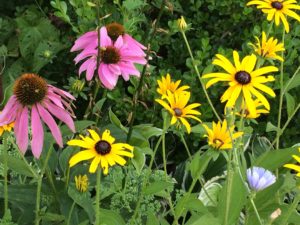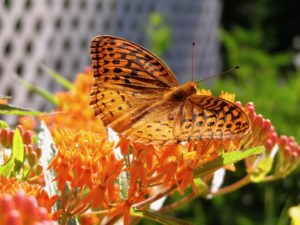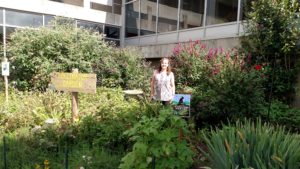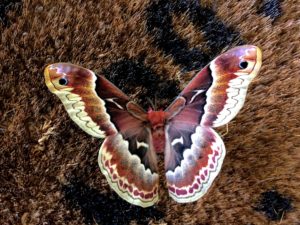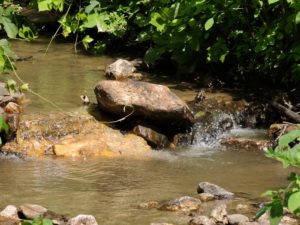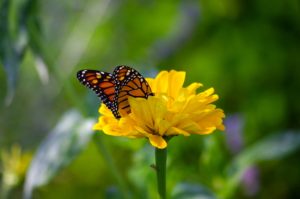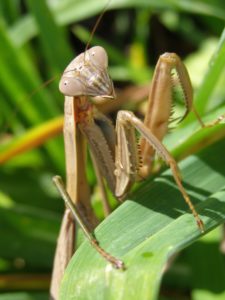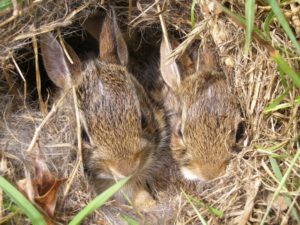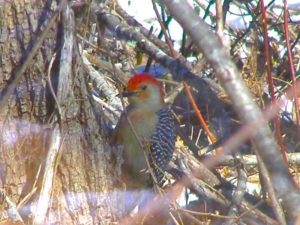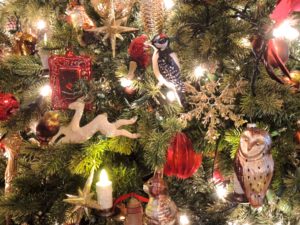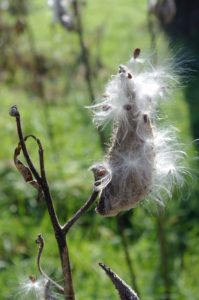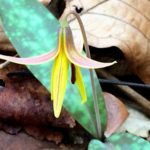BUTTERFLIES HAVE RETURNED TO WESTERN NORTH CAROLINA!
Be on the look-out for our State butterfly, the Eastern Tiger Swallowtail! They are regular diners at gardens, meadows, and roadsides, sipping on nectar at flowery pitstops.
To learn more about attracting Swallowtails and other butterflies to your yard, visit The Butterfly Highway at: https://ncwf.org/habitat/butterfly-highway/
You can receive e-newsletters with tips for planting flowers to attract a variety of butterfly species to your gardens throughout NC. (Many of the butterflies can be found in other states across the country.)
And you can certify your property as a POLLINATOR PITSTOP! Be sure to let us know what pollinators visit your gardens. You can find us on Facebook ~ Mountain WILD! Chapter of NC Wildlife Federation. We’d love to see your butterfly photos!
We hope that you will join the Lake Shore Cleanup at Fontana Lake in western North Carolina this Friday, 11/6, and Saturday, 11/7! It will be a beautiful day at the lake!!
CANCELLED EVENT:
Spotted Skunk Hair Snare Assembly Workshop
We received this message from the Wilson Wilson College professor who is the lead coordinator for the Eastern Spotted Skunk Citizen Science Project: “In the interest of everybody’s health and safety, and due to Warren Wilson College being shut down due to COVID-19, unfortunately the workshop this Sunday, March 15, at the WNC Nature Center, is cancelled. Thank you for your continued support and interest in this project.”
We will let you know when the hair snare assembly event is rescheduled.
EASTERN SPOTTED SKUNK HAIR SNARE ASSEMBLY PROJECT
Mark your calendar ~ Sunday, March 15, 2020 – 1:00 pm!
We are collaborating with Warren Wilson College, North Carolina Wildlife Federation (our parent organization) and the NC Wildlife Resources Commission in an Eastern Spotted Skunk Citizen Science Project. This project will help scientists have a better understanding of the genetic diversity of the Eastern spotted skunk populations in western North Carolina.
Our first Citizen Science event is a HAIR SNARE ASSEMBLY!
Location: Western North Carolina Nature Center, 75 Gashes Creek Rd, Asheville, NC 28805 (No admission fee to participate in this workshop; Regular admission fees apply for visiting the Nature Center exhibits/grounds).
Materials are being provided for making the snares. BUT if you have a power drill that you can bring, please bring it with you.
We hope to SPOT you at the workshop!
Please RSVP at: https://www.evite.com/event/02555OYLHMF5QAFQYEPKKP6KAO3JDE/activity?gid=0240V76JPE7IOA4BKEPKKP6SVMYBIA&utm_campaign=view_invitation_bt&utm_content=&utm_medium=email&utm_source=GUEST_INVITE_EVENT
For more Eastern Spotted Skunk information, please visit the NC Wildlife Resources Commission: https://www.ncwildlife.org/Portals/0/Learning/documents/Profiles/Mammals/Spotted_Skunk_Wildlife%20Profile_2018_FINAL.pdf
Photo courtesy of: Brian Wuertz, Warren Wilson College
GREAT BACKYARD BIRD COUNT
The 23rd Great Backyard Bird Count begins on Valentine’s Day, Friday, February 14, and continues through Monday, February 17!
Counting and reporting what birds you see is one simple way you can help support bird conservation at this critical time when so many populations are declining.
Bird watchers around the world will be counting with you. Watch birds for at least 15 minutes on one or more days of the count, and then enter your checklists at birdcount.org.
The GBBC is a citizen-science project run by the Cornell Lab of Ornithology, the National Audubon Society, with partner Birds Canada. (Thanks to NestWatch – Cornell Lab of Ornithology for sharing this info.)
HAPPY NEW YEAR!
Have you made your list of New Year’s resolutions yet? If not, it is not too late to write “Create a native plant garden.”
Now is a great time to start planning a wildlife-friendly garden with native plants. Check with your local plant nurseries to see which plants they carry or can order for you. To attract wildlife all season, we recommend having flowers that bloom through spring – summer – and fall. Think about creating gardens to attract pollinators (bees, butterflies, moths, and more) and birds.
Plant it and they will come! Since we are all about making lists, then start your wildlife-friendly visitor list. Which birds have visited your garden and when? Insects? Other critters? We hope you’ll share your lists with us. Don’t forget that we are on Facebook at Mountain WILD! Chapter of NC Wildlife Federation.
Last but not least, certify your garden with the National Wildlife Federation and NC Wildlife Federation (our parent organization)!
“A WINTER’S TAIL” ~ WNC Nature Center
Saturday, December 14, 2019 – 10:00 am – 4:00
(Nature Center admission rates apply)
Join us at A Winter’s Tail this Saturday, December 14. We will be sharing info on creating “A Home for the Holiday” for wildlife. Come find out how to certify your “yard” as a wildlife-friendly habitat with the National Wildlife Federation and NC Wildlife Federation (our parent organization).
The Nature Center will have festive crafts, games, and, of course, animal programs ~ visits with Santa, cornhusk dolls, antler headbands, popsicle stick reindeer, and face painting.
EASTERN SPOTTED SKUNK PROJECT
We are very pleased to share information about a new project for Eastern Spotted Skunks in western North Carolina.
There will be an informational meeting this Saturday, December 7th from 10:00 – 11:30 am at Warren Wilson College, Boon Hall, Room 110.
The North Carolina Wildlife Federation, in conjunction with Warren Wilson College and the NC Wildlife Resources Commission, are working on gathering more information on spotted skunks in North Carolina. This smaller and furrier relative of the striped skunk is found across the eastern U.S., including North Carolina. They used to be commonly trapped for their furs, which have a beautiful spotting pattern. However, they are also enjoyed for their ecological value and their defensive handstands.
The Eastern Spotted Skunk needs our help! This small carnivore is on the decline. Why? We are still not sure! Before we can do much, we need to know a bit more about our North Carolina skunks.
We encourage people of all ages, interests and abilities to reach out. This project has lots of opportunities for involvement, including assembling and deploying hair snare traps, community outreach and education, and data management and analysis.
Contact Tara Moore, [email protected], with questions or to let her know that you’ll attend the meeting.
We hope you will join us and participate in the project!
FALL IS PLANTING TIME!
With cool fall weather, it’s a great time for establishing NATIVE plants in your garden. These plants are more drought-tolerant and pest-resistant. Many native plant nurseries are having fall sales to reduce inventories over the winter months. Check with your local nurseries!
Consider planting Butterfly Weed to attract Monarch and Gulf Fritillary butterflies to your garden. This plant is in the Milkweed family and is a host plant for Monarch caterpillars. Adult Fritillaries and other butterflies dine on its sweet nectar! Eastern Tiger Swallowtails, Hummingbird moths, and other butterflies dine on Phlox, Echinacea (cone flowers) and Black-eyed Susans.
CONGRATULATIONS TO THE 2019 GOVERNOR’S CONSERVATION ACHIEVEMENT AWARD WINNERS
The North Carolina Wildlife Federation (our parent organization) has announced the winners of the 56th Annual Governor’s Conservation Achievement Awards.
We are delighted that our nominee, LILY DANCY-JONES, has been named ENVIRONMENTAL EDUCATOR OF THE YEAR! Lily is a high school biology teacher who has elevated pollinator habitat and awareness in the Asheville area by connecting students, community members, and local businesses.
Read our blog post to find out more about Lily!
And we are very pleased to announce that DOTTIE BROWN has been named NATURAL RESOURCES SCIENTIST OF THE YEAR! Many years ago, Mountain WILD! nominated Dottie for a scholarship through NCWF, and we were delighted when she received one to continue her Master’s studies. Dottie is now a Senior Bat Ecologist at VHB Engineering in Raleigh. Her research focuses on data collection and permitting related to numerous federal- and state-listed species, including the northern long-eared bat, gray bat, and the Virginia big-eared bat. She has spent countless hours of research and field study uncovering the devastating effects of the White-Nose syndrome on bat colonies. Congratulations, Dottie!
NATIONAL MOTH WEEK – JULY 20 – 28, 2019
Become a “Moth-er” and help celebrate the beauty of moths during this special week. National Moth Week will be celebrated worldwide. It is a great time for “moth-ers” to become Citizen Scientists and contribute scientific data to a number of organizations.
Did you know that scientists estimate that there are 150,000 to 500,000 moth species? Of those, there are approximately 49 species found in North Carolina! Fluttering night- (and day-time) pollinators!!
We’ll share more information and websites, such as: nationalmothweek.org
WONDERS OF WATER!
Join us at the WNC Nature Center on July 6th from 10:00 am – 4:00 pm!
The Nature Center will have a day of fun and educational activities to focus on discovering the use, necessities, and fascinating aspects of clean water with displays and challenges. Regular admission rates to the Nature Center apply. Members get in for free!
Mountain WILD! will make a splash as we share ideas for meeting the WATER requirement for the National Wildlife Federation’s wildlife-friendly habitat certification.
Hope to see you there!
POLLINATOR HABITAT CONSERVATION IN THE MOUNTAINS OF WNC
by Bryan Tompkins with Mountain WILD!
Sunday, June 23, 2019 — 2:00 – 4:00 PM
at The Botanical Gardens at Asheville, 151 W.T. Weaver Blvd, Asheville, NC
FREE … but Pre-registration is required at 828-252-5190
These days, there is a good chance that you have heard about the plight of North Carolina’s native pollinators. Loss of habitat, pesticides, disease, climate change, and non-native invasive species are all issues affecting the health and diversity of native pollinators in the state. With the issuance of the Presidential Memorandum — Creating a Federal Strategy to Promote the Health of Honey Bees and Other Pollinators in 2014, the US Fish and Wildlife Service began prioritizing and focusing efforts on preserving and restoring pollinator habitat.
Though pollinator diversity and populations are in decline across the state, one native pollinator has recently been spotlighted — the Rusty-Patched 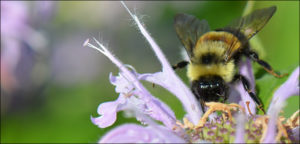 Bumble Bee. Historically, the Rusty-Patched Bumble Bee was one of the most common bumble bee species in western North Carolina. In recent years, its population has plummeted, and in 2017 it was federally listed as an endangered species. Although the Rusty-Patched Bumble Bee has not been observed in North Carolina since 2006, there are over 200 historic occurrence records of Rusty-Patched Bumble Bee in North Carolina. (Photo: Kim Mitchell – USFWS)
Bumble Bee. Historically, the Rusty-Patched Bumble Bee was one of the most common bumble bee species in western North Carolina. In recent years, its population has plummeted, and in 2017 it was federally listed as an endangered species. Although the Rusty-Patched Bumble Bee has not been observed in North Carolina since 2006, there are over 200 historic occurrence records of Rusty-Patched Bumble Bee in North Carolina. (Photo: Kim Mitchell – USFWS)
Last year, the USFWS teamed up with Wild South (a local land conservation NGO) to create a Citizen Science program to help in the survey efforts for the species. This presentation will include a discussion of the federal listing of Rusty-Patched Bumble Bee and Endangered Species Act consultation requirements, a look into other pollinator species such as the Monarch Butterfly and Yellow-Banded Bumble Bee that are currently under review for federal listing, a review of the local survey efforts and data collected over the last two years, and a look at how this information is being used to guide future recovery efforts and pollinator habitat restoration in the mountains of western North Carolina.
Bryan Tompkins currently serves as the USFWS – Southeast Region recovery biologist for the federally endangered Rusty-Patched Bumble Bee. His recent efforts have been focused on the conservation of pollinator species with emphasis on the preservation and restoration of native pollinator habitat in North Carolina.
We hope to see you at this FREE program during POLLINATOR MONTH!
Certify Your Yard or Garden During POLLINATOR MONTH!
June is POLLINATOR MONTH throughout the United States, and special activities will occur during National Pollinator Week, June 17 – 23, 2019. (Check with environmental organizations where you live to discover pollinator events.)
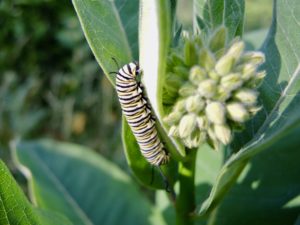 Why wait for that week to do something great for pollinators?
Why wait for that week to do something great for pollinators?
You can certify your yard or garden with the National Wildlife Federation (NWF) and North Carolina Wildlife Federation (NCWF) anytime. When completing the online application, you’ll confirm that you are providing the required number of elements for the following: Food, Water, Cover, Places to Raise Young, and Sustainable Practices.
Why not designate an area in your garden as a pollinator pitstop? Be sure to include host plants for feeding insect larva, such as Monarch caterpillars (in photo above), and nectar-producing plants for adults. We encourage including native plants and perennials.
Butterflies aren’t the only pollinators that may visit your yard! Others include bats, bees, beetles, birds, flies, hummingbirds, and insects, such as this Praying mantis.
Unfortunately, loss of habitat, use of pesticides, climate change, and water pollution negatively impact many of these animals.
So fly or flutter to these websites to begin the certification process:
NWF: https://www.nwf.org/Garden-for-Wildlife/Certify
NCWF: https://ncwf.org/programs/certified-wildlife-habitat/
It’s Almost Fluffle Time in Western North Carolina
We’re looking forward to winter being over and the arrival of spring in western North Carolina!
With spring, Eastern Cottontail rabbits will begin reproducing. They’ll continue nesting into September. The gestation period is 27 days. Females give birth to up to 12 babies, which are called “kits” – short for “kitten.” They will remain in the nest until they are four to five weeks old. Oh, and a group of bunnies is called a “fluffle”!
When mowing your yard or meadow, be watchful for rabbit nests. They are NOT easy to find! The female, called a “doe,” creates a shallow hole in the ground, which she covers with grass and pieces of her own fur.
The mother rabbit only visits the nest twice a day to feed her young. The rest of the time, she is off eating. So if you come across a nest with no presence of mama, do not be concerned!
If you disturb a nest or your dog finds one, place the babies back in the nest. Replace the nesting material over the kits. Then make a crosshatch pattern of sticks or string over the nest. When mama returns, she will move the sticks or string in order to feed her young.
We don’t know that we’ll see any rabbits hopping in our meadow with a basket!
The 22nd Annual Great Backyard Bird Count (GBBC)
February 15-18, 2019
Count for as little as 15 minutes in your backyard, community area, schoolyard — anywhere where you can observe birds!
As a Citizen Scientist, you will help researchers at the Cornell Lab of Ornithology and the National Audubon Society learn more about how birds are doing and how to protect them and our environment.
Participants are asked to count birds for as long as you wish on one or more days of the four-day event. Keep a list of your sightings. Then report them online at:
bird count.org.
Anyone can take part — beginning bird watchers to experts!
FOR MORE INFORMATION: www.audubon.org/conservation/about-great-backyard-bird-count
Merry Christmas Wishes
All of us at Mountain WILD! wish you a joyful Christmas with family and friends!
We hope that singing birds greet you throughout this special day!
(Photo taken at the Biltmore Estate, Asheville, NC – December 2017)
Fall Planting Time in Western North Carolina
This is a great time to design a garden with native plants to attract wildlife to your yard. Many native plant nurseries are having sales. Check with your local nursery to see which plants will work best in your yard.
You can plant seeds, too, between now and early January. Watch for freeze warnings! Plants, such as Common milkweed, need cold temperatures to help with germination.
Celebrate with Mountain WILD! at The Salvage Station on Thursday, October 4, 2018 ~ 5:00 PM – 10:00 PM.
We will celebrate the City of Asheville’s Community Wildlife Habitat Certification by the National Wildlife Federation. There are only seven NC cities and 195 cities in the USA to have earned this certification!
Mountain WILD! will hand out native wildflower seeds from The Butterfly Highway (NC Wildlife Federation) WHILE SUPPLIES LAST!
Doors open at 5:00 pm; opening music acts begin at 6:00 pm; GREENSKY BLUEGRASS concert is at 7:00 pm.
Tickets required! https://www.salvagestation.com/events2/2018/10/4/greensky-bluegrass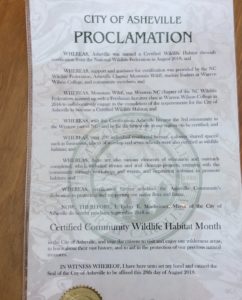
Mountain WILD! worked with Freshman Seminar students at Warren Wilson College in Swannanoa, AB Tech students, businesses, community residents, schools and churches to certify 280 homes, seven schools, businesses, two churches, and 10 common spaces.
For more information, please see our BLOG post of September 3, 2018.
SEPTEMBER 2018 ~ CITY OF ASHEVILLE ~ CERTIFIED COMMUNITY WILDLIFE HABITAT MONTH!
On August 28, 2018, Esther E. Manheimer, Mayor of the City of Asheville, issued a City of Asheville Proclamation. She declared September 2018 as “Certified Community Wildlife Habitat Month.”
The proclamation recognizes Asheville as a Certified Wildlife Habitat by the National Wildlife Federation (NWF) in August 2018. “Asheville became the 3rd community in the Western part of NC – and by far the largest city in our region – to be certified.” (There are ONLY 195 cities in the United States with this certification! Asheville is the 7th community in NC to earn NWF certification.)
The proclamation continues:
“WHEREAS, certification further solidifies the Asheville Community’s dedication to protecting and supporting our native flora and fauna.
NOW, THEREFORE, I, Esther E. Manheimer, Mayor of the City of Asheville, do hereby proclaim September 2018 as CERTIFIED COMMUNITY WILDLIFE HABITAT MONTH.”
To certify your property during September (or any other month!), please visit:
https://www.nwf.org/Garden-for-Wildlife/Certify OR
http://ncwf.org/programs/certified-wildlife-habitat/
*CERTIFY ASHEVILLE!
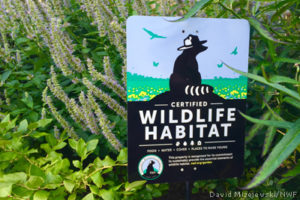 We are incredibly close to completing requirements for our beautiful City of Asheville to become a Certified Wildlife Habitat Community! We need YOUR help to cross the finish line.
We are incredibly close to completing requirements for our beautiful City of Asheville to become a Certified Wildlife Habitat Community! We need YOUR help to cross the finish line.
How to help? Certify your residence, business, school, church or public space! Follow the Link HERE for a step-by-step guide to certifying your wildlife habitat. You can contact us at [email protected] or [email protected].
———————————————————
Mountain WILD! is the Western North Carolina chapter of the NC Wildlife Federation. We are a volunteer group that wants to preserve and increase wildlife and wildlife habitat of the western North Carolina mountains through stewardship, education, conservation and restoration of natural resources.
We are involved in helping wildlife by volunteering, educating our youth and aligning our energy with others working to make a difference in our local community.
Mountain Wild is currently working on certifying the City of Asheville as a Certified Wildlife Friendly Community. For more information on how to support this cause, click here.
What we do: Mountain WILD! partners with the North Carolina Wildlife Commission with both the Game Division and Wildlife Diversity Division. Volunteers work with projects such as peregrine falcon monitoring, northern flying squirrel monitoring, building bat habitat, surveying for box turtles, salamanders, snakes and wild turkeys. Opportunities to learn through working with biologists and other professionals are endless.
We also work closely with schools and faith-based wildlife garden projects. There are volunteer opportunities in unique ecosystems such as Mount Mitchell. If you want to help wildlife and wildlife habitat, we can direct you to the right opportunity.
